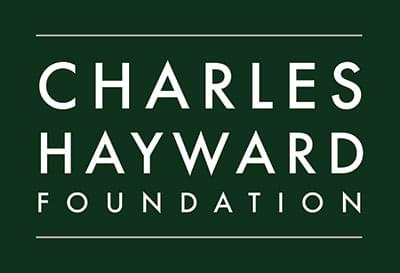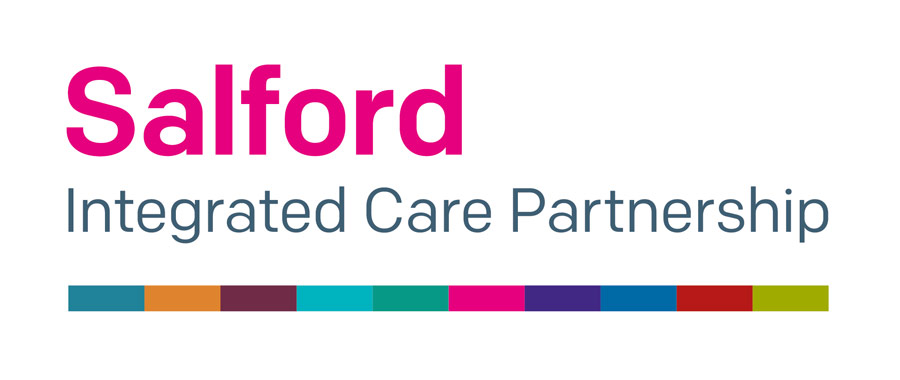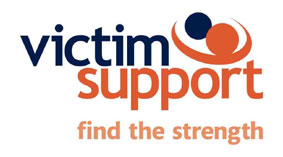 Being a victim of any kind of crime can be frightening and upsetting. But rape and sexual assault are particularly distressing crimes for the victim and the effects can last for a long time. And men can find this kind of attack difficult to deal with because this is widely, but wrongly, thought of as a crime that only affects women. Many men feel ashamed or embarassed because of this, but it is estimated that around 1 in 20 men have been sexually assaulted at least once in their lifetime.
Being a victim of any kind of crime can be frightening and upsetting. But rape and sexual assault are particularly distressing crimes for the victim and the effects can last for a long time. And men can find this kind of attack difficult to deal with because this is widely, but wrongly, thought of as a crime that only affects women. Many men feel ashamed or embarassed because of this, but it is estimated that around 1 in 20 men have been sexually assaulted at least once in their lifetime.
As everybody is different, it is not easy to know exactly how you will feel. But it’s very likely that you are going though some very intense emotions. People who’ve been through this describe feeling frightened, guilty, powerless, angry, ashamed and depressed, and having difficulty eating, sleeping or concentrating. Many victims feel that they have lost control over their lives and lose their self-esteem. Some find it very difficult to deal with the intimate aspects of the crime, especially when they have to talk to other people about what has happened.
If you’ve been assaulted by a partner or someone else you know, the effects may be even greater. As well as the experience itself you’ve had your trust abused and this can affect your relationship with other people, both now and in the future. You might also be worried about how friends and family are going to react. But never forget that whoever the attacker was, it’s not your fault.
A few facts about rape and male victims
Men can be victims of sexual attack regardless of their sexual orientation. And while the attacker is more often male, men can be and are sexually assaulted by women. Rape and other forms of sexual assault are violent crimes that involve sexual acts and while the sexuality of those involved can sometimes be a factor, it is frequently not. For many attackers, the most significant thing is that they are taking control of the victim, expressing anger or seeking to hurt someone – albeit through a forced sexual act.
If you have been a victim of this kind of crime you may naturally start to think about issues of sexuality. You may wonder if the attacker was gay, straight or bisexual. You may also worry about whether or not it has implications for your own sexuality. Some men are particularly upset because they may have become physically aroused during the attack and worry about what this could mean. But if this has happened to you, you should remember that this is likely to have been a purely physical reaction, like a reflex, over which you may have no control.
These are issues that concern many victims of sexual assault and it can be helpful to talk to someone, like one of our volunteers, about this and other fears or worries you may have.
We can help
Our services are confidential, free and available to anyone who’s been raped or sexually assaulted, now or in the past. We can help, regardless of whether you have told the police or anyone else about the attack.
Our volunteers can visit you at home (if you want us to, and if doing so will not put you at further risk) or somewhere else if you prefer. If you don’t want to see anyone face-to-face, you can also talk to us on the ‘phone, either at one of our local offices or at the national Victim Supportline on 0845 30 30 900 (calls charged at the local rate).
If you choose to report the attack, we can go to the police station with you. If you give evidence in court, our Witness Service can help you to cope with the experience. We can also give you information about compensation.
Health issues
You may be worried about sexually transmitted infections (STIs) after a rape or sexual attack. If you are over 16, hospitals and doctors must see you in complete confidence, and will not tell the police unless you ask them to. Even if you are under 16 most doctors will try to keep what has happened to you as confidential as possible. If you prefer not to use your own GP there are many clinics which offer free and confidential testing and advice.
Sexually transmitted infections
Even if you have no symptoms, a check up for STIs is a sensible precaution after a rape or sexual assault. You can get help and advice from your GP or practice nurse, family planning clinics or Brook Advisory Centres.
Any of these can refer you to a GUM clinic where you can be tested. Or you can contact your nearest large hospital and ask for an appointment with the GUM clinic yourself.
If you may have been exposed to HIV (the virus that causes AIDS), you should seek medical advice quickly as there is medication which can prevent HIV from taking hold in some people – but only if it is taken quickly after infection. This treatment, called post exposure prophylaxis (PEP), may be available from your nearest GUM clinic or hospital A&E department. You can find out more about PEP on the Terrence Higgins Trust website.
You can choose to have an HIV test separately. This will usually happen at a GUM clinic and you will normally be offered counselling before the test. Your GP can arrange the test for you, but if you are worried about confidentiality you can go direct to the GUM clinic.
For confidential advice about HIV, call the THT Direct helpline on 0845 12 21 200 (10am – 10pm Monday to Friday, 12pm – 6pm Saturday and Sunday), or the free 24-hour Sexual Healthline on 0800 567 123.
Telling the police
Only you can decide whether or not to report the assault to the police. If you don’t know what to do, we can talk with you about what it would mean and what your options are. You can report the attack to the police straight away, later, or not at all if you choose. If you report an attack soon after it has happened, however, it may give the police an opportunity to get physical evidence against your attacker that might be gone if you report the crime later. A police officer will take basic details from you. If the assault happened recently, the police will arrange an examination by medical staff to collect evidence. We know that an intimate examination might be the last thing you want after an experience like this, but it’s important to remember that it may give the police evidence to help convict your attacker. If you’re unsure about what to do, we can talk through your options with you and help you make a choice you feel comfortable with.
You may be near one of the growing number of sexual assault referral centres (SARCs). These are local partnerships between the police, health services and voluntary organisations set up to focus on your immediate support needs. They are independent one-stop centres where victims of sexual assault can get medical care and support while at the same time having the opportunity to help any police investigation (if you choose to report the crime). The centres include facilities for forensic examination to collect physical evidence. If appropriate, the police will ask you if you’d like to be referred, or you can go directly to the SARC yourself if you do not want to report the incident to the police.
The police will take further details from you only when you feel ready. The statement you make will be used as the main evidence if your attacker is caught and there is a court case. The police should arrange an interpreter for people who have difficulties with English.
You will be told the name of the officer dealing with your case. The police will let you know if someone is caught and charged and whether or not they are released on bail. You should tell the police if you are worried that the attacker will harass or intimidate you. If the police charge someone with rape or indecent assault, they pass the evidence to the Crown Prosecution Service (CPS) who prepare the case for court.
If you want, we can help you in your contact with the police and the CPS.
The court process
You may have to wait a few months for the case to go to court if someone is charged with raping or assaulting you. The police will send you a letter telling you the date of the hearing. If the person pleads ‘guilty’, you will not have to give evidence but you can still choose to go to court if you want to. The police or CPS should tell you what sentence has been given. If the person pleads ‘not guilty’ you may be asked to go to give evidence. If this happens, remember that you can take a friend for support, or we can arrange for one of our volunteers to go with you.
Going to court
If you have to go to court in connection with the attack, we have information on what to expect and how we can support you. Talk to one of our staff or volunteers and ask about the range of measures to help protect you and your privacy through the court process – we can give you details.
Other legal action
You can take out a private prosecution for rape or sexual assault or go to the civil court to sue the alleged attacker for damages. If you think you might want to do this you should consult a solicitor. If you are worried about your safety you should tell the police and you may be able to obtain an injunction to help make sure that your attacker stays away from you. When an offender is released or if your attacker is sentenced to one year or more in prison, the Probation Service must ask you if you want to be informed about plans for his or her release. You should tell the Probation Service if you have any concerns about this.
Compensation
As a victim of sexual violence, you may be able to get Criminal Injuries Compensation. Normally the crime must have been reported to the police for you to qualify, but we can give you more information about this. Alternatively, click on the link here [Civil Action Link]
How to contact us
Most people are referred to us by the police when they report a crime. But anyone can contact us directly if they want to. You can also email or call the Victim Supportline on 0845 30 30 900 for support and information. We hope that you will get in touch with us, but if you decide not to now, you can call us at any point in the future.
Victim Support in Greater Manchester
Greater Manchester
0161 727 0240
North West region
The Victim Supportline is our national telephone helpline which handles over 15,000 calls a year. It’s a member of the national Helplines Association.
If you want to talk to us completely anonymously, you can call our Supportline without giving your name, address or phone number. You can hide your number when you call us by dialling 141 before our Supportline number (0845 30 30 900). You can also send Supportline an email using an anonymous email address. The Supportline is a member of the Helplines Association.
If you want to contact our Supportline, you should call 0845 30 30 900. Typetalk users should dial 18001 0845 30 30 900. To hide your number, press 141 before dialling our number.
Normal opening hours for the Supportline are:
8am – 8pm Mondays to Fridays
9am – 5pm Saturday
North West
Our North West region runs all our services across Cumbria, Cheshire, Lancashire, Merseyside and Greater Manchester.
If you need our help
call your nearest victim care team for help, support and information. All offices are open Monday to Friday from 8am to 8pm. To find out more about the kind of help we can give you, go to our ‘How we help’ pages.
Cheshire
01270 750 068
Cumbria
0845 241 1832
Greater Manchester
0845 456 8800
Lancashire
01772 201 142
Merseyside
0151 353 4025
Crisis Support
 |
You know, if you feel in crisis and need to talk to someone then you can always call the Samaritans on 08457 90 90 90 (24hrs) or in an emergency please dial 999 for free. There is always someone at the end of the phone that can and will help and although it may feel like it, your never on your own! Pick up the phone and reach out, please don’t suffer in silence |

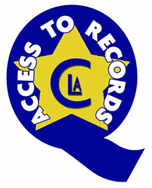
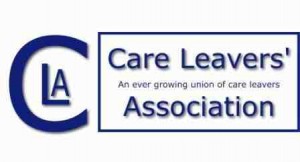 If you have a query, you can contact us a number of ways as follows:
If you have a query, you can contact us a number of ways as follows: Being a victim of any kind of crime can be frightening and upsetting. But rape and sexual assault are particularly distressing crimes for the victim and the effects can last for a long time. And men can find this kind of attack difficult to deal with because this is widely, but wrongly, thought of as a crime that only affects women. Many men feel ashamed or embarassed because of this, but it is estimated that around 1 in 20 men have been sexually assaulted at least once in their lifetime.
Being a victim of any kind of crime can be frightening and upsetting. But rape and sexual assault are particularly distressing crimes for the victim and the effects can last for a long time. And men can find this kind of attack difficult to deal with because this is widely, but wrongly, thought of as a crime that only affects women. Many men feel ashamed or embarassed because of this, but it is estimated that around 1 in 20 men have been sexually assaulted at least once in their lifetime.









